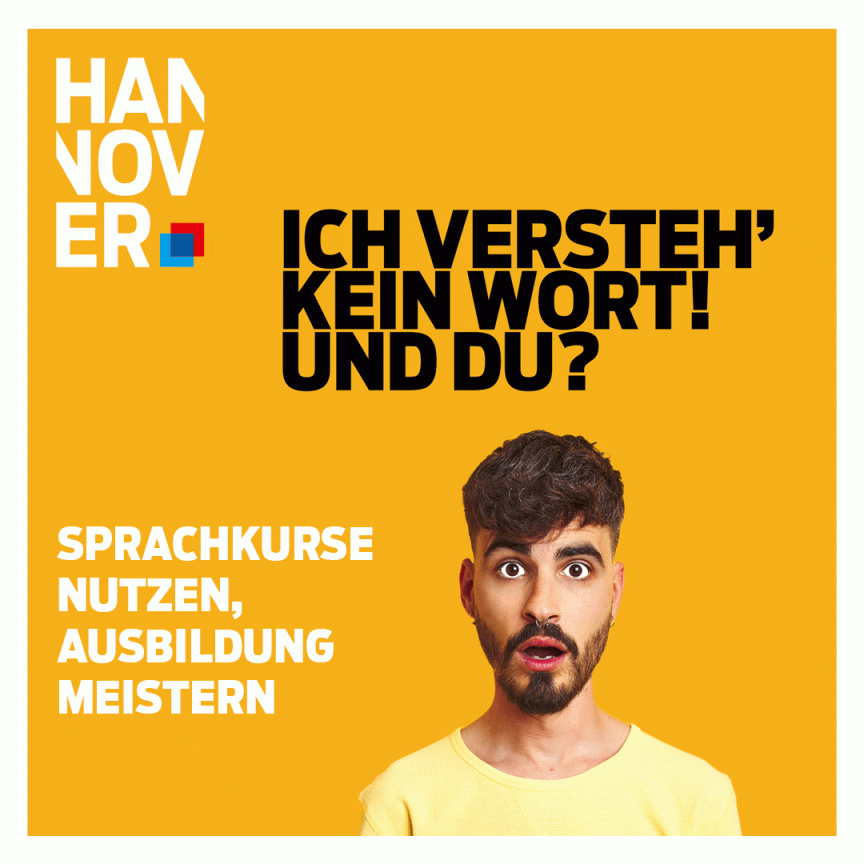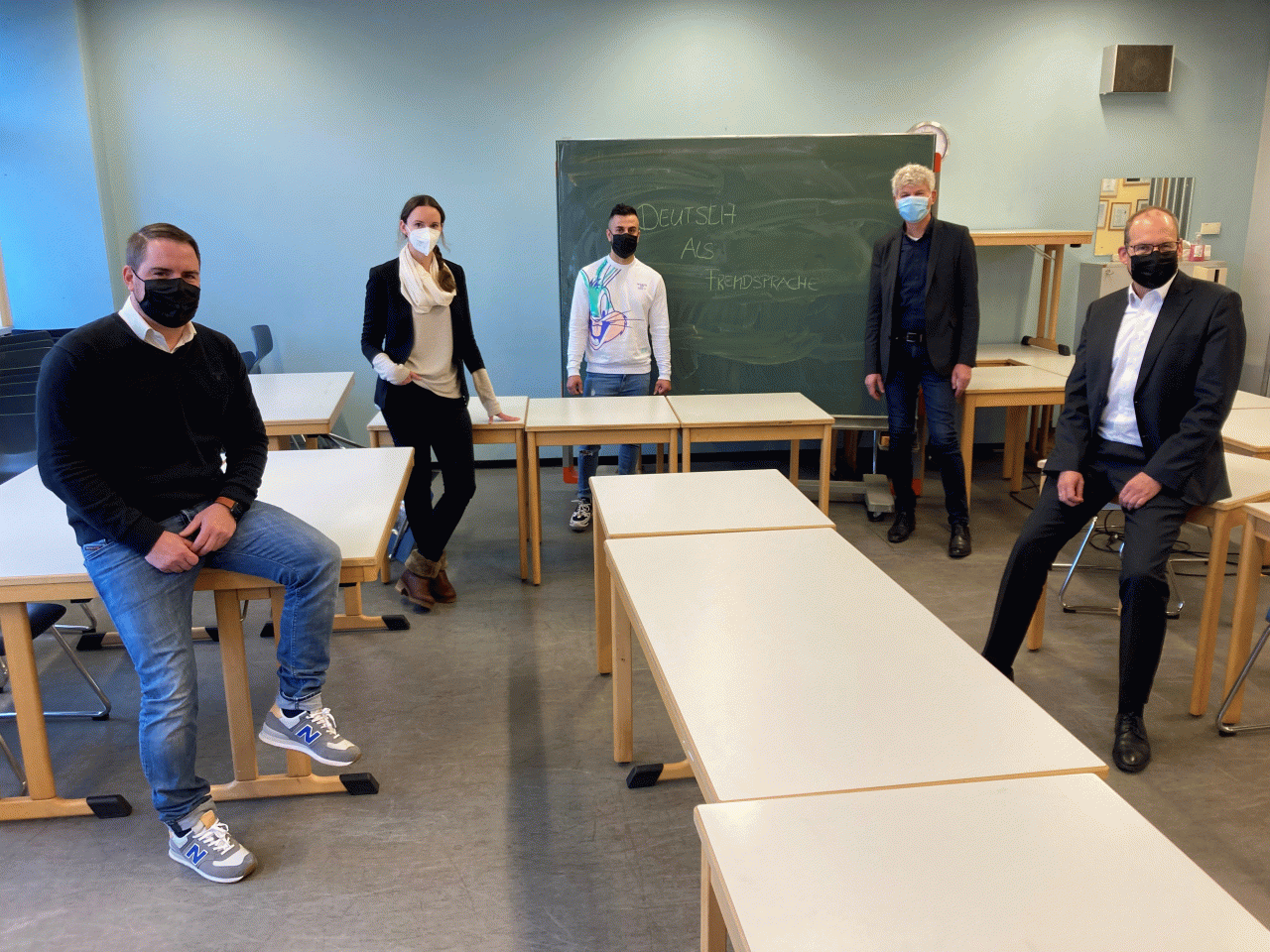German language skills as the key to successful training
 Hanover Region
Hanover Region Understanding technical terms, implementing work instructions, completing tasks, asking specific questions when something is unclear: Only those who have mastered the German language to this extent can successfully complete dual training in a company and at a vocational school. However, this is often a problem for young immigrants. Without German language skills, it is difficult for them to complete their vocational training and enter the job market.
Ulf-Birger Franz, Head of the Department of Economics and Education: "Language is the central hurdle for passing the training. But it's not just about that, language is much more - it's also integration. Those who can express themselves can participate better in life. Language support helps in everyday life - for example, when it comes to addressing problems at work." At the same time, targeted language support also benefits companies. After all, apprenticeships are often abandoned because the language barrier is too high.
The Hannover Region helps as a mediator and advice center with various language support measures. In concrete terms, it looks like this: The language courses tailored to the training occupation begin with an individual language test to determine at which level the language support starts and which course is the right one. Together with accompanying language support during the training, the program offers the trainees the opportunity to deal intensively with the theoretical part of the training - without the German language as a "hurdle".
 Hanover Region, c. Pförtner
Hanover Region, c. Pförtner Mazen Khedar Pirali, a plumbing, heating and air conditioning apprentice at the Hainhölzer Haustechnik company Ernst Martin, has successfully completed the first course and has already started the next one. "I now understand German much better and can also speak it better," reports the young Iraqi. "And I'm also learning the technical terms you need in building services." His trainer Jan-Martin Elsholz is pleased with his apprentice's progress: "After some bumpy conversations at the beginning, we can now communicate well with each other. This makes it easier to work together and also ensures progress in the training."
Desislava Tzvetkova-Gerken is the contact person for language support for trainees at the Hannover Region. She organizes the courses and knows exactly where the needs lie and what the current challenges are: "Language support takes time. We rely on close and coordinated cooperation between vocational schools, training providers and training companies to ensure that continuous and subject-oriented language support is successful."
The training companies do not have to pay for language courses, but simply release the trainees from their work at the company for one day a week. This enables the trainees to attend five "German" lessons, the results of which also benefit the company at the end. The language lessons are organized by the Hanover Education Association. Anna Kretschmann: "The content of the course is linked to the content of the apprenticeship and also focuses on exam-relevant topics."
The vocational schools have a good eye for which students have such difficulties with the German language that support is useful and necessary. "We determine the need, contact the training companies and provide the necessary rooms for lessons on site," explains Harald Meier, principal of BBS 3, where Mazen Khedar Pirali is currently in his second year of training.
In addition to the course that the young Iraqi is completing there with seven other students, such courses are now also taking place at the Multimedia-BBS and the BBS Hannah Arendt. Further courses are being planned and are due to start soon at BBS Cora Berliner, BBS ME, BBS Burgdorf and BBS Springe.
Advice and information on language support for trainees is available from the Hannover Region. The contact person in the Regional Schools and Student Affairs team is Desislava Tzvetkova-Gerken, contact details see below.
Please share: Clips on social media show young people how important language is in the workplace. Language courses help them to master their training!
The "chameleon brush"
The "labeling device"
Contact us
Desislava Tsvetkova-Gehrken
Phone (0511) 616-27180, e-mail: desislava.tzvetkova-gerken@region-hannover.de
Press contact: Frauke Bittner
Tel. 0511 616 - 22598, frauke.bittner@region-hannover.de
